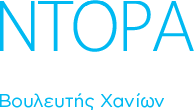UN’s Post-2015 Sustainable Development Agenda – Measuring Sharing Societies
Athens, Acropolis Museum,
Dora Bakoyannis, MP
Ladies and Gentlemen,
Dear friends,
I am delighted to welcome the Board of Nizami Ganjavi International Center and the Board of the Club de Madrid in Athens.
Moreover, I would like to thank the Marianna Vardinoyannis Foundation for the kind invitation to address such a distinguished audience.
Until now, the Millennium Development Goals, have been the most successful global anti-poverty initiative in history. They have made a huge difference, helping to set global and national priorities and fuel action on the ground, raising awareness and shaping a broad vision that remains the overarching framework for development work across the world.
We have guaranteed access to safe drinking water for more people. More kids are attending primary school. Child deaths have dropped dramatically, and targeted investments in fighting malaria, AIDS and tuberculosis have saved millions of lives.
Looking beyond 2015, much remains to be done. The new development agenda will need to advance sustainable development, improving economic and social well-being, while protecting the environment.
We have to address issues including inclusive growth, equality, peace and security, governance and human rights.
It must constitute global transformational change for people and the planet, with common, shared responsibilities for all countries, recognizing that each country has different capabilities.
We need a concrete and inspirational agenda, with time-bound targets.
Ladies and Gentlemen,
Dear friends,
As I have mentioned in our previous meeting in Baku, nowadays countries and peoples that few years ago hardly knew little about each other, are strategically and economically interconnected.
We are a global “village”, as the standard expression goes. This connection calls for immediate information. We need to emphasize similarities and convergences than highlighting tensions and differences.
In order to address the persistent inequalities, with a minimum of success, we need a minimum of understanding.
We have to agree what is the minimum of the legal framework that is accepted by every country, irrespective of its religion and culture, whose existence can not be an excuse for not applying internationally binding legal agreements.
I strongly believe that as a shared society, all individuals and constituent groups hold status as equally contributing participants.
Yes, all the bodies are free to express their differences, while integrating their voices within the broader population.
But this is not enough. We need to become shared societies internally and to promote, at last, the notion of shared regional and international values and interests. This is an interconnected world; and we should, day by day, work on increasing what binds us together.
Thank you.

